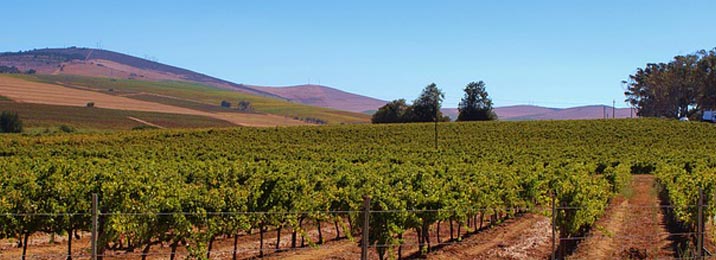Possible business complications involved with winery buying and ownership
Q and A with Attorney Brian Simas of Kirk & Simas, PLC
For this Q and A, Pacifica Wine Division interviews Attorney, Brian Simas. Simas grew up on the Central Coast, graduating from Cal Poly with dual degrees in Wine and Viticulture and Agricultural Business. He entered his legal career with years of work experience and knowledge in the wine industry. Today, in addition to his practice, Simas is an Adjunct Professor of Law at Pepperdine University School of Law, where he teaches a wine law and compliance course, and is a Lecturer in the Wine and Viticulture Department at Cal Poly.
Q: What is the biggest business related legal issue that you have noticed with your clients that want to buy a winery or vineyard?
With drought conditions persisting, one of the biggest current issues is water rights. Right now in places like the Paso Robles water basin, emergency ordinances go as far as to restrict winery and vineyard owners from even drilling new wells. It is important to make sure any prospective property has adequate water resources and facilities for current and future intended operations.
Q: What are some business complications that could arise while owning a vineyard or winery?
Trademarking is an every increasing issue. Clearing and trademarking a brand, to the extent it is known, should always be the first step in any business plan. I’m amazed how much capital is spent on brand development by industry stakeholders before their brands are cleared for TM conflicts. We find a terminal name conflict for well over half the names that come across our desks, usually well after clients have undergone significant costly brand development.
Another critical issue currently affecting clients is the reduction in labor resources and increased labor costs.
A more timeless issue is lack of marketing. Many new entrants to the industry do not understand how product is marketed and/or overlook establishing any form of strategic marketing that will ensure long term financial solvency.
Q: How is the labor market changing?
The agricultural labor market is very competitive right now. In our local market, berry pickers, for instance, make significantly more money than vineyard workers. We’ve been seeing vineyards diversifying and including berry crops to keep labor crews year round.
At a macroeconomic level, the labor shortages are accelerated by Mexico’s improving political and economic environment and new, more restrictive, immigration rules imposed by the U.S.
These issues combined with new laws surrounding employee access to insurance and sick leave are going to create some big changes in the labor market in the coming years. It should be expected that labor shortages will persist and costs will continue to increase. More mechanization is on the horizon.
Q: Why is marketing so important?
It’s an age old wine industry adage that it’s easy to make wine (and it is), but hard to sell it. This is ever more true today, especially as craft beer and spirits pick up market share in an already saturated alcoholic beverage market. Winemakers and owners often focus efforts on quality wine production and curating a particular aesthetic with the public, but otherwise ignore strategic marketing programs. Quality and aesthetics cannot alone translate to a successful brand or financial solvency. I teach my students at Cal Poly about how to work from the market back to the winery to create strategic marketing plans and strongly encourage them to work in distribution at some point in their early career before returning to the winery to build their own brands.
Q: What can someone do to avoid these issues?
A good start would be to hire the right specialized wine industry professional team in the areas of legal, accounting, and marketing.

